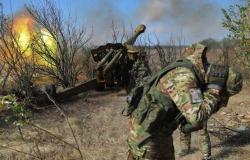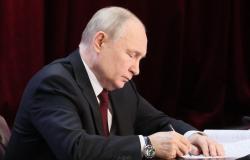
Chinese leader Xi Jinping said the US and China should be “partners rather than adversaries” during a meeting he had with senior US diplomat Antony Blinken in the Great Hall of the People in Beijing on Friday, CNN reports .
The meeting, which took place on the final day of Blinken’s three-day visit to China, comes as the two countries seek to continue to stabilize rocky relations and expand communication – including on a number of disputes, from technology to Taiwan.
“China would like to see a confident, open and prosperous US. We hope the United States will see China’s development in a positive light,” Xi told Blinken.
“Once this fundamental issue is resolved … Sino-US relations will truly improve and move forward,” he said. “China and the US should be partners rather than adversaries; to help each other succeed rather than hurt each other.”
Xi’s comments come as Chinese officials express irritation at actions Washington has taken in the name of national security in the face of an increasingly assertive China, but which Beijing sees as aimed at stifling its development . These included US controls on the export to China of high-tech goods that could have military uses, as well as restrictions on US investment in certain high-tech sectors in China.
On Wednesday, US President Joe Biden signed into law a bill that could lead to a nationwide ban on the social media platform TikTok if ByteDance, the company’s Chinese parent company, does not sell it – legislation that Beijing has previously criticized .
Blinken told Xi that the US was “committed to maintaining and strengthening lines of communication” with China and “responsibly dealing with our differences so that we have no miscommunication, no misperception and no miscalculation “.
Examples of recent progress Blinken cited include “restoring communications between the military, combating drug trafficking, and thinking together about the future of artificial intelligence.”
Their meeting followed a five-hour face-to-face meeting between Blinken and his counterpart Wang Yi, which both sides characterized as “substantial and constructive”.
But Wang was also clear about the sharp tensions that still exist between the world’s two superpowers. At the start of their meeting, Wang said China and the US faced a choice between stability and a “downward spiral”.
“Should China and the United States maintain the correct direction of moving forward with stability or return to a downward spiral? This is a major question facing our two countries and tests our sincerity and ability,” Wang told Blinken during a meeting at the Diaoyutai State Guest House, after asserting that US-China ties “they’re starting to stabilize.”
“Should our two sides lead international cooperation against global problems and win-win? Or engage in rivalry and confrontation — or even slide into conflict, which would be a loss for all?” he said, speaking through an interpreter.
During a subsequent closed-door meeting, Wang accused the US of “taking endless measures to suppress China’s economy, trade, science and technology” and of exaggerating recent concerns about China’s industrial “overcapacity” flooding global markets.
“(US measures) are not fair competition but restraint, and they do not eliminate risks, they create risks,” he said, according to an editorial in Chinese state media.
In comments to Wang before the closed-door session, Blinken stressed a “shared responsibility” between the two countries to “make sure we are as clear as possible about the areas where we have differences.”
“I hope we can make progress on the issues that our presidents have agreed that we should cooperate on, but also clarify our differences, our intentions, and be very clear to each other where we stand,” Blinken said.
The trip is the latest in a series of high-level engagements that included a high-level meeting between President Biden and Chinese leader Xi Jinping in California in November after a period of immense tensions.
The two sides also discussed the next steps regarding the commitments made by the two leaders on advancing cooperation in counter-narcotics, military-to-military communication, discussions on the risks and safety of artificial intelligence, and facilitating people-to-people exchanges, he said. US State Department following the meeting.
“Peace and Stability”
Blinken’s trip to China — his second in a year — also comes as the two countries navigate a series of thorny geopolitical and regional issues, from China’s support for Russia to its aggression in the South China and towards Taiwan.
Among the key concerns for the US is what Washington has described as China’s industrial and economic support for Russia, which it says has allowed Moscow to continue its war against Ukraine. Beijing has previously criticized the US for making “baseless allegations” about “normal trade and economic exchanges” between China and Russia.
Blinken and Wang discussed “concerns about (China’s) support for the Russian defense industrial base,” US State Department spokesman Matt Miller said after their meeting.
The two also discussed “the importance of maintaining peace and stability in the Taiwan Strait, (China’s) activities in the South China Sea and the need to avoid further escalation in the Middle East and the Korean Peninsula,” according to Miller .
China’s reading note notes that the two sides exchanged views on “the Ukrainian issue, the Palestinian-Israeli conflict, North Korea, Myanmar and other issues.”
Wang called on the US to “stop forcing countries in the region to choose a side” and said the Asia-Pacific region “should not become a battleground for major powers”, in a likely allusion to concerns its related to increasing US defense relations with long-standing Asian allies.
On Taiwan, Wang repeated Beijing’s typical warning that “the Taiwan issue is the first insurmountable red line” in US-China relations.
The ruling Chinese Communist Party claims Taiwan as part of its territory, though it has never controlled it, and has stepped up its military intimidation of the democratic island in recent years.
It criticizes the informal relationship between the US and Taiwan, as well as arms sales to Taiwan, which the US is required to make under the Taiwan Relations Act.
Tags: China partners adversaries Choose stability downward spiral sends Beijing
-




